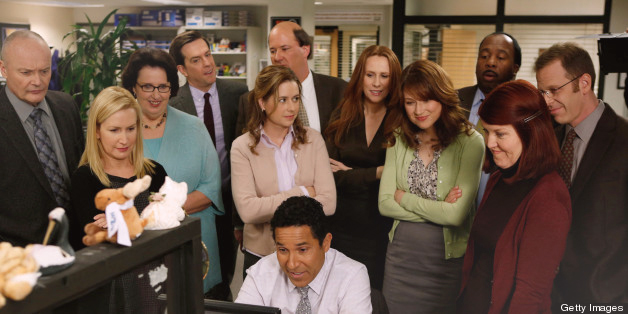Truth, Love, & Argument
What’s your favorite hot take?
We’ve all got one. Like maybe you think that yellow Starbursts are the superior Starburst flavor. Or maybe you think the Beatles are overrated. Maybe you think that robots taking over humanity wouldn’t be so bad. Maybe you enjoy rush hour traffic. I, for one, will argue extensively for The Last Jedi as the objectively best StarWars film. I’ll do it. Mess around and find out.
The internet, in particular, is a factory for these kinds of unpopular opinions, to the point of becoming cliched. I’d argue that no particular platform is worse than any others; anywhere and everywhere discussion happens on the world wide web, you can bet on being inundated with countless of these spicy, spicy observations accompanied by “Why is nobody talking about…?” and, my personal favorite, “... But you’re not ready to hear that yet.”
Which raises the question: Who is our audience if not the people we claim to be addressing? It’s a serious question which requires our consideration and, ultimately, our full and honest answer, but we’ll get to it later. You’re not ready to hear that yet.
The fact is that we’re innately attracted to unpopular opinions. Or, at least, to the ones which we agree with. There’s something kind of sexy about them, right? Or maybe it’s nobility. We respond to ideas that taste like dangerous honesty and inflexible integrity, and we want to be the kinds of people with the courage to share them — Perhaps to even think of them first. We want to be the heroes whom others gaze on with reverence, asking why we’d say something so controversial yet so brave.
And you know what? While that impulse might be easy to judge if you’re so inclined, it doesn’t have to be a bad thing. There is courage in telling the truth when it’s risky. There is nobility in holding to your integrity, regardless of the outcome. As a chronic idealist/romantic, I am the last person who will try to persuade you away from those worthy pursuits. The problem at play is that we as humans will inevitably twist the best things we can be into the very worst, and then fail to see the difference once we’ve done it.
I recognize this revelation falls somewhat short of a hot take. If you’re reading this essay, you’re online. If you’re online, you’ve been watching the same garbage fire I’ve been watching for years. Instead of approaching differences in politics, culture, and/or faith with caution and humility, there is a gleeful destructiveness that seeks to create the biggest conflict possible. The undercurrent of spite and stubbornness is evident everywhere, and from memes to comment wars to literal violence we have been reaping its consequences. Tensions have never been higher in my lifetime; maybe never in yours, either. It’s a mess, and we absolutely must stop looking externally for someone or something to blame if it’s ever going to get better. The call is coming from inside the house.
We’ve ruined it.
We’ve ruined meaningful conversation. We’ve ruined productive disagreement. We have ruined, in essence, arguing. We’ve forgotten how and why to do it, or maybe we never knew to begin with. All I can say for sure is that unless we learn, unless we own responsibility, we’ll continue shooting the work of the Kingdom in the foot until we all die out and God raises up a new generation to redeem what we were too stubborn to see.
There is a wider cultural conversation that could be had, to be sure, but this is not about that: Do me a kindness and turn off the part of your brain trying to pivot to all of the other groupings of people who are “Just As Bad.” Today, like most days, I am speaking specifically to the American Church. This essay is about rhetoric, relationship, and the biblical precedent for airing unpopular opinions.
Let’s begin with Ephesians 4.
“Instead, speaking the truth in love, we will grow to become in every respect the mature body of him who is the head, that is, Christ.”
Ephesians 4:15 (NIV)
For all of its bad press, I truly believe this is the best place to start if we’re going to commit to a more thorough understanding of what scripture teaches about communicating well, especially when we know what we have to say might be difficult to receive. That being said, for those who’ve grown up in church it’s possible that the mention of this chapter brings a cold tension to your chest that you can’t quite name. Perhaps it was wielded against you, or maybe you watched it used to cut down someone else. Maybe you’ve never witnessed its lethality in person, but the phrase still leaves a bad taste in your mouth.
And yet, that’s what makes it the perfect source text. One of our greatest failings as the American church is our complacency with piecemeal biblical teaching. Not every message needs to be a seminary lecture, that would be neither necessary nor helpful. However, American Christians have formed a terribly bad habit of building powerful ideologies on the skeletal foundation of biblical bullet points taught to us by Just One Guy (whomever he may be), and if nothing else we’ve got to do better than that. Context matters, because what we believe and why we believe it matters.
So let’s have a look at the text, and let’s really look at it.
There’s a phrase I’ve been hearing a lot lately. I’m not sure who said it first so I don’t know who to credit, but it’s a good one and I’m glad it’s going around:
“Scripture can’t mean something to us that it didn’t mean to its original audience. It is for us, but it isn’t to us.”
This means that in order to avoid projecting inaccurate assumptions onto scripture, we have to have some understanding of genre and historical context. The book of Ephesians is a letter; so who were its intended recipients?
The church in Ephesus was planted by Paul, one of the first missionaries to non-Jewish people back in the first century - You can read about his time in the city in Acts 19, it’s a fun one. The main thing to know about Ephesus is that it was a massive Roman metropolitan center with an incredibly diverse population. Because of this, the local church was also incredibly diverse. The Jesus community there included Believers from every ethnic and socioeconomic background in a way that was completely unique to the time. When Paul wrote this church, his goal was to remind these different and even seemingly opposing demographics of the unifying nature of the Gospel, and to walk them through the way that looks when lived out in everyday life.
So how is he making those points? Let’s look at literary context next. Here’s how chapter four starts:
“As a prisoner for the Lord, then, I urge you to live a life worthy of the calling you have received. Be completely humble and gentle; be patient, bearing with one another in love. Make every effort to keep the unity of the Spirit through the bond of peace. There is one body and one Spirit, just as you were called to one hope when you were called; one Lord, one faith, one baptism; one God and Father of all, who is over all and through all and in all.”
Ephesians 4:1-6
Paul begins this series of thoughts by reminding the Ephesians of his position as an incarcerated person and the reason for his incarceration, something he talks about throughout the letter to illustrate the surpassing value of the Gospel. He uses it here to urge the church to communicate with each other in good faith, and to work hard to remain on the same team.
He goes on to explain in verses 7-13 the way that God, through Jesus, gave the Church many different kinds of leaders and collaborators in order to build it up, the ultimate goal being that the body of Christ would be truly unified and reflect Jesus perfectly.
“Then we will no longer be infants, tossed back and forth by the waves, and blown here and there by every wind of teaching and by the cunning and craftiness of people in their deceitful scheming. Instead, speaking the truth in love, we will grow to become in every respect the mature body of him who is the head, that is, Christ. From him the whole body, joined and held together by every supporting ligament, grows and builds itself up in love, as each part does its work.”
Ephesians 4:14-16 (emphasis added)
Paul wraps up the chapter by reminding the Ephesian church of their pre-salvation lives, and encourages them to take off that old way of living like an old pair of clothes (verses 17-24). He talks about the natural outcome of the new life they have, and the way it should affect the way they treat people and live in society (verses 25-28). Lastly, he tells them that unkindness, spite, and bad faith arguments grieve the Holy Spirit, and reminds them to forgive as they have been forgiven (verses 29-32).
When we talk about “speaking the truth in love”, we are meant to understand it as a call to listen to each other, support each other, and assume the best of each other in the face of significant personal differences. Instead, this life-giving command is broadly used as a cover for moral bullying and rhetorical laziness. So what do we do? How do we get better? How do we ensure that we are not deceiving ourselves when we step out into the world, or just sit across from a friend, and open our mouths?
How do we bring this principle out of the abstract and into our practical living?
I think we need to allow for the possibility that even though we may have known and agreed with all of the above, we still don’t fully understand it. I think we need to be willing to check the observable reality of our hearts and behavior against every single word scripture teaches, and then I think we need to check again; and I do mean, “we.” Even me. Even you.
The world needs God’s people to be loving, to be brave, and to tell the truth. But before we open our mouths, I would propose that we ask ourselves the following:
Is it really truth?
Is it really love?
Is it really for me to speak it?
We’re going to walk through each of those one by one, because that’s just the sort of party this is.
To start, we need to establish a metric for truth.
I recognize this is easier said than done, but let’s give it a go anyways. The first order of business is to make a firm distinction between tradition and orthodoxy; they are related, yes, but they are not synonyms. Tradition is, by dictionary definition, “a doctrine believed to have divine authority though not in the scriptures.” Orthodoxy, coming from the Greek orthodoxía, means “righteous/correct opinion” and deals primarily with foundational theology that was generally agreed upon at the beginning age of the Christian Church.
Tradition is beautiful, comforting, and multi-faceted. It has names like Catholicism, Methodism, Lutheranism, Pentecostalism, Baptistdom, and so on. It comes with many sets of prayers, songs, and favorite stories. It may look to us like truth, because it introduced us to truth. But it isn’t. It’s just a way of engaging with truth, and if we put the cart before the horse in this we end up making ourselves very silly. That’s how we become all hopped up on denominational superiority, getting into flame wars about theology and losing friendships every time someone decides to leave our church for a doctrinally inferior local body. It’s bad. Stop it.
Orthodoxy, on the other hand, is the essence of the faith. Orthodoxy is not about granularity. It is not concerned with secondary or tertiary issues, and thus it most truly encapsulates what it means to be a follower of Christ. When Paul spoke about one body and one Spirit, this was what he meant. Whereas traditions will have statements of faith that contain dozens if not hundreds of articles, orthodoxy can be very simply summed up in a short set of ecumenical creeds.
You’ll notice we haven’t gotten into philosophy, culture, or politics. We’re not going to, because the purpose of this exercise is to identify the truth we can know. You might be very confident in your ideology. Good for you! It might be carefully considered and thoroughly informed by your faith. That’s awesome! I still don’t believe that means it falls under knowable fact. No, I’m not a relativist (I even wrote 3,262 words on why I’m not a couple years back.) What I am is open to the possibility that I don’t really know that much and will continue to not know that much until I die, and if I had to guess you don’t really know that much either. There’s just a lot to know. We can still talk about what we think, but taking what we think and dressing it up like something we know and then sitting somebody down and trying to make them agree with us just isn’t helpful. It’s a little megalomaniacal, actually.
Jesus Christ, crucified and resurrected, is the metric of truth for the believing person. We can make some decent guesses at all the other stuff, but our reasoning must flow from His character and His mission as agreed upon by the Church Universal. And no, this does not mean that the only thing worth getting into a flame war over is the Apostles’ Creed. It’s simply a matter of giving things their proper weight, and speaking accordingly. Just take some time, humble yourself, and be sure you understand what you’re talking about.
But once we are sure of the legitimacy of what we want to say, we are by no means ready to pull the trigger. There have been plenty of sound scriptural opinions blasted into the world that did far greater harm than good. In the absence of love, the highest wisdom and the sharpest insight is absolutely useless. If we want to speak truth, and if we want it to be heard, we must ask ourselves:
Do we have
an accurate understanding of what love looks like?
For this step of the exercise, we can begin and end with 1 Corinthians 13.
“If I speak in the tongues of men or of angels, but do not have love, I am only a resounding gong or a clanging cymbal. If I have the gift of prophecy and can fathom all mysteries and all knowledge, and if I have a faith that can move mountains, but do not have love, I am nothing. If I give all I possess to the poor and give over my body to hardship that I may boast, but do not have love, I gain nothing.”
1 Corinthians 13:1-3
Again I say: Our best, devoid of love, simply does not matter. I don’t care if you’re a champion debater. I don’t care if you’ve won awards for your persuasive essays. I don’t care if your content has thousands and thousands of likes from people who already agree with you. In the original Greek, the word for “clanging” is alalazó, and a more direct translation is literally “to raise a war cry.” It’s the sound an enemy hears. It’s a threat. If you have no love, real love, no one who needs to hear you is going to listen.
It’s easy to get this wrong. I am earnestly praying as I type, and edit, and type again that I am not getting it wrong. The fact is that the world can smell it on us when we’re missing this essential quality, even as we may think we’re doing just fine. Please listen to me when I say that charitable works and vague goodwill are not a valid substitute for the kind of love that the Gospel requires of us. In fact, that insufficiency was in many ways the root of Jesus’ conflict with the Pharisees in His day.
I learned something recently that seriously impacted my perspective of the gospel stories. Apparently, Pharisees in the early 1st century were, generally speaking, a stand-up group of guys. Like really nice people, the kind you’d want living in your neighborhood and teaching your kids. To some of you it may seem pretty obvious, but growing up on church plays and little bible animations I’d always known Pharisees as mustache-twirling villains who hated the poor and spat on sinners for entertainment. I was definitely surprised to hear the opposite, but it makes sense if you consider the nature of their law; Leviticus 19, in particular, can be best summed up as “Be a good human.”
We (read: I) may have had the impression that Jesus was a renegade running around shocking snobs with His message of common decency, but that just wasn’t the case. The ancient Jews were intimately concerned with the welfare of their neighbor, and thus Jesus inherited a heritage of niceness and doing-the-right-thing. So why did He constantly pick fights with all of those nice, scripturally-literate, church-going folks?
Because just as religion is one of the most effective inoculations against faith, niceness and charity are some of the most effective inoculations against Gospel love. We think we are good people because we tip 18% and smile at the waiter, but that’s not nearly enough. Jesus understood that, from the first words He spoke announcing His ministry in Luke 4 to His last moments bleeding out on the cross, and everything His said or did in the middle underscored that point.
“Love is patient, love is kind. It does not envy, it does not boast, it is not proud. It does not dishonor others, it is not self-seeking, it is not easily angered, it keeps no record of wrongs. Love does not delight in evil but rejoices with the truth. It always protects, always trusts, always hopes, always perseveres.”
1 Corinthians 13:4-7
When you examine your feelings toward the person or group you feel you should speak to, how does it line up with this standard? Do you have patience towards the tired, hurting souls you consider under the banner of “the world”? When you think of those whom you disagree with, is your heart kind? I mean truly kind, not just self-righteously concerned with converting those outside your camp to a More Correct way of thinking. We’re talking sit-and-have-a-meal, listen-to-their-story, care-about-their-life, cry-over-their-hurt kindness. We’re talking Jesus kindness; the kindness He, incidentally, shows you and me.
Something happens to us when we allow the patient, kind, hopeful love of Jesus Christ to overflow into our perception of those outside our camp. We find that we will no longer tolerate nastiness and disrespect aimed in their direction, especially from those inside our camp. Love does not dishonor others. We find that we are less concerned with our moral superiority than we are with being a safe place for broken people. Love is not self-seeking. We find that instead of being set off by every remark that contradicts our worldview, we are no longer fragile. Love is not easily angered. We find we are able to let go of our preconceptions and meet each conversation with optimism and a desire to understand. Love keeps no record of wrongs.
The natural outcome of Gospel love is the miracle of good faith.
I keep using that term. I want to make sure we all know what that means in this context:
Good faith is primarily a legal term for acting in honesty, fairness, and lawfulness of purpose, coming from the Latin bona fides, but it can also mean a fair-minded approach to argument. It bears mentioning that in the classical Roman usage, bona fides is always mutual; today, for our purposes, it might be most accurate to say that the natural outcome of Gospel love is the miracle of assuming good faith.
Proverbs 18:2 says that “fools find no pleasure in understanding but delight in airing their own opinions.” So what does wisdom do? What does love do? The last step of this part of the exercise is to ask ourselves if we have a fair understanding of the position we disagree with. In fact, if you’re already in the middle of discourse it can be helpful to repeat back to the person you’re talking to what you think they’re saying in the fairest terms possible, and give them the opportunity to correct you. This is called steel-manning (straw-manning’s benevolent twin.)
I’ll be bold here. If you can’t argue an issue convincingly from the other side, you probably have neither the intellectual understanding nor the heart posture to address it. We must be willing to believe the best of those who hold positions we disagree with, and that includes the reasons why they hold those positions. We must be willing to set aside our certainty, step into their shoes, and try to wrap our brains around the way they see the world. To truly love, we must deeply know.
But here’s the thing.
We might have our facts flawlessly straight.
We might love so deeply we cry about it in the shower (just me? okay.)
There is still one more thing to consider, and it might be the most important one of all. Before we open our mouths, before we get involved, before we attach the name of Jesus to our opinion by association, we have got to ask ourselves:
Do we really have the platform to say this thing to this audience at this time?
Why should they listen to you? No, really. Why? I’m not talking about the authority of scripture or the absoluteness of Biblical truth. I’m talking about you. Have you earned the right to be heard, and how do you know? Because it matters, possibly more than anything else.
I didn’t just break up this mountain of text with coffee photos to be cute, y’all. I went with this theme because effective communication ultimately comes down to relationship. If you were to picture the person you want to persuade, whether they be a known individual or an archetype, how would they interpret a coffee invite from you? How would you, if you were them? Do they have a reason to trust your heart and character in the face of impending conflict? That’s not something you can solve with a rushed preamble when you already have a lecture locked and loaded. If they don’t know you like that already, they don’t know you like that.
Practically, this means the kid you haven’t seen since high school will not benefit from your thoughts on his relationship choices. Your coworker’s aunt will not be better for your paragraph responding to her Instagram story on personal nutrition, and Maria from Baltimore is profoundly unlikely to read your comment-section rebuttal and rethink her opinions on the US Postal Service. Seriously, stop fighting with strangers in the comment section. No argument can overcome the absence of platform. Your input, regardless of intention, will almost certainly not be productive.
But Kyle, that’s bias! I hear you screaming.
Yes! It is! Well spotted.
Bias is nothing more than the way we perceive reality based on our personal experiences. Everybody’s got it, and everybody’s going to continue to have it, at least a little bit, forever. Once you embrace that inevitability it becomes infinitely easier to listen and communicate successfully.
We need to be able to recognize when we’re just not the right tool for the job. If somebody is viscerally distrustful of women with college degrees, I have no reason to expect them to be persuaded by my opinions on the best way to serve carrots. And hey: if I’m distrustful of people who serve carrots boiled, maybe a carrot-boiler isn’t the best person for me to try and persuade that higher education isn’t an inherently corruptive system. That doesn’t make either of us stupid or evil, it probably just means that they’ve had negative experiences with women who have college degrees and I’ve been unfortunate enough to eat boiled carrots.
While I do believe that the diminishment of our biases is part of the sanctifying work of the Holy Spirit, I also believe that thinking we will be entirely free of them this side of eternity is hubris. You see the world at a slant, and your neighbor sees it at a different slant. The question is whether or not you can still talk fairly to each other and trust that things won’t get too twisted around.
This next part of the exercise is unique in that it is exclusive to engagement that is not one-to-one: In terms of public address, who is your audience really?
That’s right. It’s been a long time coming, but you’re finally ready to hear it.
This is particularly for those of us in the habit of sharing our thoughts with a posture of authority. Do me a solid and go look at the last two or three posts you made to that effect — Don’t worry, we’ll wait. Once you’ve got them in front of you, read them from a third-party perspective.
Would someone who does not already agree with you be compelled?
It’s not a matter of sound logic, friend. It’s not a matter of appeal to authority, or of accurate if-then-therefore reasoning. It’s not even a matter of whether or not those things should be the matter. The reason that there were three arts of discourse developed in Ancient Greece was that logic and grammar will not accomplish the full job of communication alone. Rhetoric is, according to Aristotle’s definition, "the faculty of observing in any given case the available means of persuasion.” This isn’t touchy-feely stuff, this is classical academia; if you are not expressing your ideas in a way that is compelling, you simply cannot expect people to listen to you. That means sarcasm isn’t the move when you’re trying to move a hostile audience. Neither is smugness, even though it feels sooo good. You might wear down respondents with your relentlessly objective debate club techniques until they no longer engage, but you haven’t convinced them. If anything, you’ve done both them and your point even more harm.
So who is your audience, if not whom you claim to be addressing?
Are you looking to persuade, or are you looking for a fight you think you can win? Are you looking to compel, or are you looking for a round of high-fives from those in your circle with the same convictions? Are you looking to motivate meaningful introspection and maybe even, Lord willing, life-change, or are you just trying to rally your base?
It’s possible you have been explaining negative feedback to your efforts with the excuse that the Gospel is controversial, and I hear you. However, I spend a very large portion of my time in secular spaces, and I can tell you right now that the average response to me talking about my faith is overwhelmingly respectful and even enthusiastic. I recognize this is anecdotal evidence, but surely multiple theologically orthodox Jesus conversations a week for the past 10 years in an environment where I was raised to expect hostility is data worth considering. The Kingdom of God is at odds with the kingdom of this world, that much is true, but I am extremely skeptical that you are experiencing pushback solely because the Christian faith is socially unpopular.
I’m not making this plea as a bleeding heart hippie begging everyone to get along. It’s much more serious than that; taking shots at the unsaved in the name of “defending the faith” isn’t merely unhelpful, it’s patently unbiblical. Paul started quite a lot of riots in his day, but it wasn’t because he spent all of his time owning the pagans with a truth they couldn’t handle. In fact, in his rebuke of the Corinthian church in 1 Corinthians 5, he makes a quick note that the standards they should live by as Jesus followers would be a ridiculous thing to hold anyone outside their community to.
“What business is it of mine to judge those outside the church? Are you not to judge those inside?”
1 Corinthians 5:12
So again, I say: who is your audience? And who should it be? Is it not a much worthier use of your time to rebuke your own camp than to spin your wheels condemning The Other? There is plenty to challenge and lament in Christendom, what business is it of ours to fly into moral panic every time an explicitly secular movement comes to our attention?
“God will judge those outside. ‘Expel the wicked person from among you.’”
1 Corinthians 5:13
But Kyle! I hear you bringing up very calmly and rationally, Aren’t you taking the teeth out of the Word of God? The Bible isn’t a warm and fuzzy book, I mean even Jesus could be really harsh to those who wouldn’t believe!
Yes, He could. Sometimes a full-send condemnation is the move, colorful language and all. In fact, from Genesis to Revelation there is a consistent pattern of scathing rebuke delivered from God to humanity in a myriad of ways. Our Lord and Savior did in fact roll into the temple one time and flip tables in a demonstration of holy anger, and there are times when it is our place to feel that same anger. Honestly? I’m angry right now. Our problem arises when we misunderstand the parameters of our right to imitate that degree of harshness.
There are elements of Jesus’ incarnate nature that will always be beyond our limitations, the chief example being His claim to deity. Jesus spoke with the authority of Creator God, originator and sustainer of the cosmos, because He was God. That is a claim we simply do not have, and our posture needs to reflect that. Furthermore, Jesus spoke with the authority of one Who truly knew what was in the heart of everyone He spoke to: “He did not need any testimony about mankind, for he knew what was in each person.” (John 2:25) I like to think I’m a pretty accurate judge of character, but I can’t claim to do that. Lastly, Jesus spoke with the authority of one Who loved each and every human being with an entirely perfect love: “Greater love has no one than this: to lay down one’s life for one’s friends.” (John 15:13) Who among us can truly imitate the fullness of Jesus’ sacrifice on our behalf? While we have access through the Spirit to real love, it will never be perfect.
It is a good and worthy thing to imitate Christ, but we must not become overconfident in our zeal. Jesus’ firmness in addressing people throughout the gospels is not a free pass for us to throw harsh words at anyone we see as wrong. He is God, and we are not. Rather, the New Testament writers are extraordinarily clear that we are, first and foremost, to imitate His meekness:
“In your relationships with one another, have the same mindset as Christ Jesus:
Who, being in very nature God,
did not consider equality with God something to be used to his own advantage;
rather, he made himself nothing
by taking the very nature of a servant,
being made in human likeness.
And being found in appearance as a man,
he humbled himself
by becoming obedient to death—
even death on a cross!”
Philippians 2:5-8
Once you’ve walked through this exercise, take a moment of honest evaluation.
Is your position really truth? Is your motivation really love? Are you really the most effective messenger for this audience at this time? If your answer to any of these self-reflections has been “no,” it is entirely possible that the holiest thing you can do is limit your freedom and shut up. Yes, I mean that. Even if you are 1000% right in your position on the issue and can prove it for days, if there is any shadow of arrogance in your heart the best thing you can do is shut up. Even if your compassion for those you wish to correct literally keeps you awake at night, if you have not earned the right to be heard by them the very best thing you can do is pray God’s goodness for them and shut yourself up. Just take a knee, and a few deep breaths, and shut up.
And as you shut up, allow yourself to experience the peace of trusting God to bring justice to a place where you have not been appointed to involve yourself. Yes, I do say justice: righting wrong thinking is a form of doing justice. There are more forces at work for the Kingdom in the world than you, trust them to do the labor you cannot. Support them in whatever way you can, praying often that the Lord would show them favor.
And if you’ve passed this exercise and are still compelled to speak — Go for it, and Godspeed. May you go forth with courage, humility, and the readiness that comes from the Gospel of Peace. May the Lord inspire and direct your speech, and may He open ears to hear and minds to understand. May the Word of God never return void.
Because here’s the thing, friends: it’s not too late for us. If you’re still reading this behemoth, it’s not too late for you. I still believe in the Church. I love her with every fiber of my being, and that’s why I have chosen to open my mouth and speak. I desperately hope and pray that every word, every cross-reference, every hyperlink, every stupid cup of coffee resonates in your soul as proof that this labor has been undertaken with real love. I love the Church, and I am convinced she is yet the beacon of light and hope the world needs her to be.
What could possibly be more transformative than the Church of Jesus Christ rising up to heal the damage caused by unkindness, spite, and bad faith argument? What could possibly be more attractive to the lost than to see the body of Christ unified, growing and building itself up in love, as each part does its work? What could possibly be more compelling than the citizens of God’s Kingdom declaring the Good News with conviction, wisdom, fairness, and skill? If you’re seeking a recipe for global revival, this is it.
The truth is worth speaking.
Let us be sure we speak it well.
“Do not let any unwholesome talk come out of your mouths, but only what is helpful for building others up according to their needs, that it may benefit those who listen. And do not grieve the Holy Spirit of God, with whom you were sealed for the day of redemption. Get rid of all bitterness, rage and anger, brawling and slander, along with every form of malice.
Be kind and compassionate to one another, forgiving each other, just as in Christ God forgave you.”
Ephesians 4:29-32
— Kyle




































